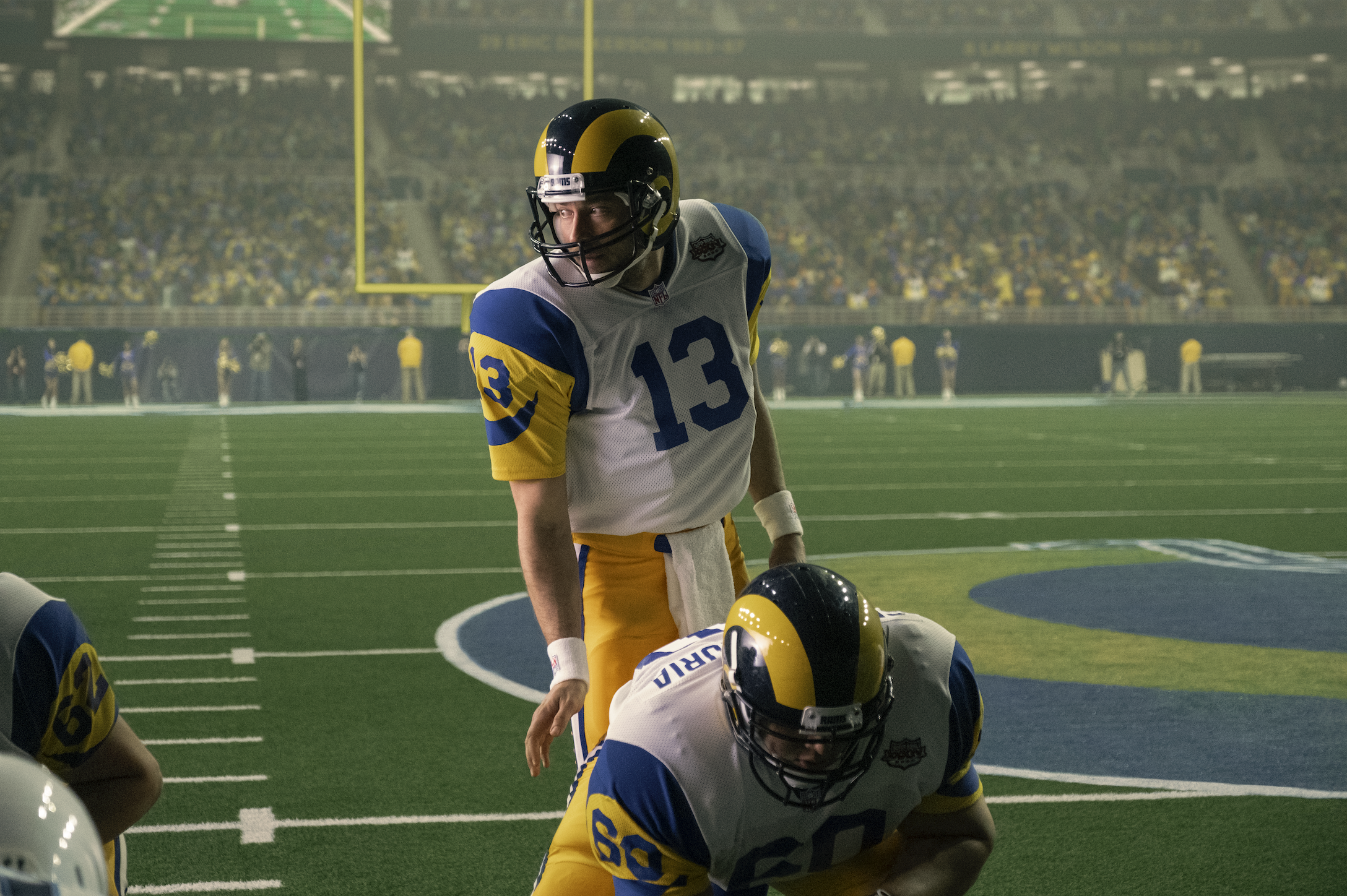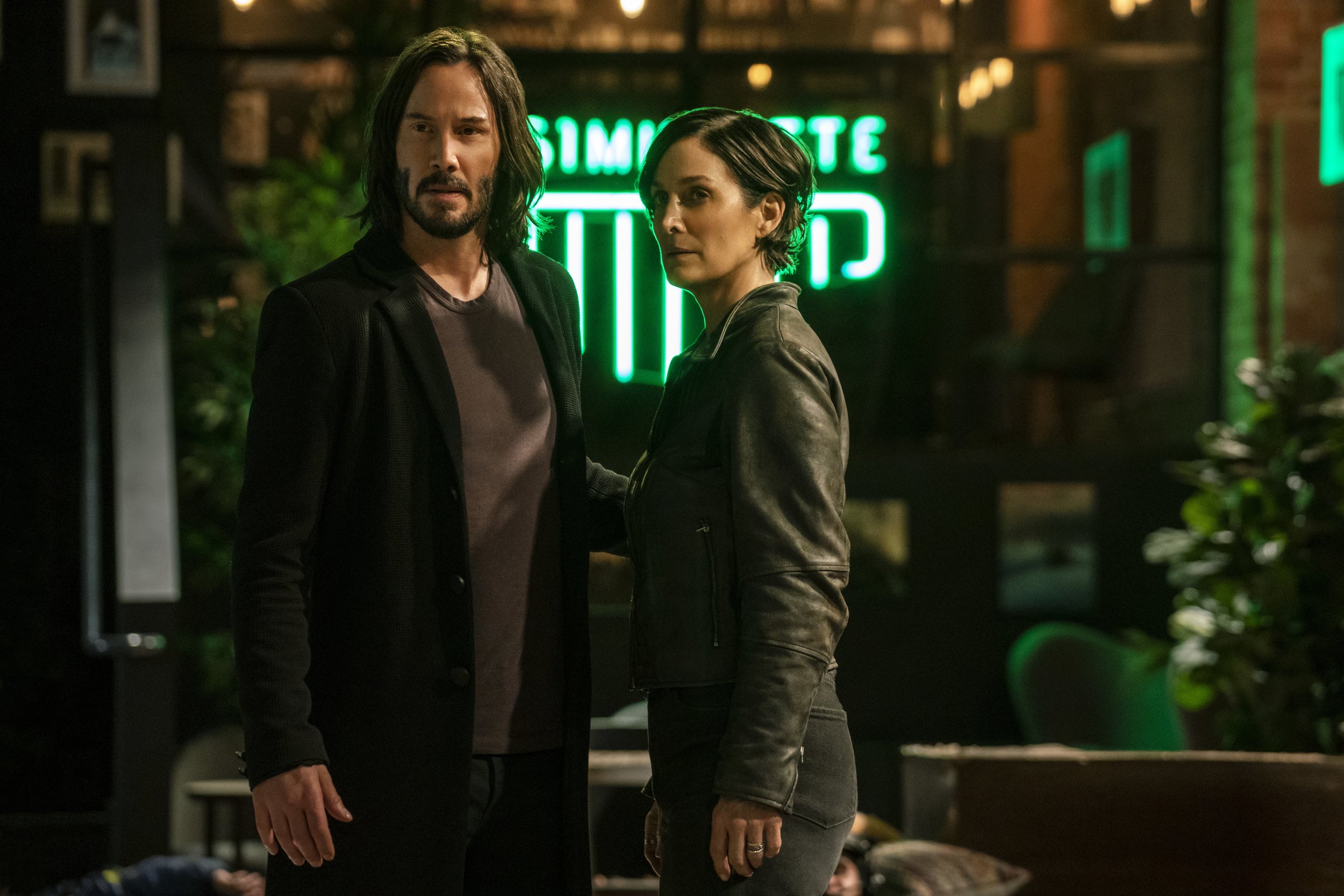Review: In 'Licorice Pizza,' rookie performers Cooper Hoffman and Alana Haim give this '70s hangout movie its bite
I’m not usually a great fan of hangout movies — meandering stories of offbeat characters, with a plot that doesn’t particularly go anywhere — unless the characters, like those in “Licorice Pizza,” are really compelling and worth spending the time to know.
Writer-director Paul Thomas Anderson introduces his two main characters in this story, set in the San Fernando Valley in 1973, in a charmingly prosaic way: Gary Valentine (played by Cooper Hoffman) is a high-schooler in line to get his school picture taken, and Alana Kane (played by rocker Alana Haim), in her mid-20s, is working as the photographer’s assistant. On little more than a brief meeting, Gary declares to a buddy, “I met the girl I’m going to marry one day.”
Gary, even though he’s only 15, is ridiculously self-confident, maybe because he got an early start as a child actor; there’s a hilarious early scene where Gary tries to upstage the diva star (Christine Ebersole) in a reunion performance of a musical they once did together. This attitude allows him to walk into his favorite restaurant, an old-school Hollywood haunt, and be treated like a regular. It also prompts him to start a business selling waterbeds — which is how he ends up meeting Jon Peters (Bradley Cooper), a tightly wound celebrity hairdresser who never fails to mention that he’s dating Barbra Streisand.
Alana could use a little of Gary’s self-regard in her life. She’s a bit aimless, so becoming Gary’s top saleswoman and marketing consultant seems like a logical step. The question of whether Alana is letting Gary indulge in his fantasies of striking up a romance, or whether she’s secretly attracted to this kid, is one Anderson leaves open-ended for most of the movie’s run.
Only in the last couple of minutes is the audience forced to consider the unconquerable 10-year age gap. (If the guy was 25 and the girl was 15, we wouldn’t find this nearly so charming, but in fact really creepy.) But Anderson allows us to ignore that disparity by diverting us with other moments — like when Alana becomes the arm candy for an aging action star (Sean Penn) or volunteers for a political campaign and develops a crush on the candidate (Benny Safdie).
Anderson grew up in the San Fernando Valley, and it’s also where he set his late-‘90s masterpieces “Boogie Nights” and “Magnolia.” He has a clear nostalgic love for this maligned suburb of Los Angeles, and that rose-colored view permeates “Licorice Pizza,” thanks to Anderson’s precision with period detail and the lush cinematography, credited to Anderson and Michael Bauman.
In this well-rendered re-creation of a ‘70s suburb, Anderson serves up two of the fiercest, funniest, and most heartbreaking debut roles, and his young stars nail their performances perfectly. Hoffman has the shlubby looks of his late father, and Anderson’s frequent collaborator, Philip Seymour Hoffman — Gary’s waterbed pitches made me, for a moment, flash back to his dad’s “mattress king” character from “Punch-Drunk Love” — but with a sunnier disposition. And Haim, in her first movie role, is a revelation, capturing with sharp intensity the sensation of being on the cusp of maturity but not quite ready to leave childhood behind. (Haim’s real-life sisters, her bandmates in the group Haim, play her sisters here, and their parents portray their parents.)
The narrative wanders frequently in “Licorice Pizza,” but Anderson lets it go to so many interesting places and meet so many interesting people that you don’t mind. “Licorice Pizza” becomes like a long-playing record that you want to listen to again, every track in order.
——
‘Licorice Pizza’
★★★1/2
Opens Friday, December 24, at the Broadway Centre Cinemas (Salt Lake City) and elsewhere. Rated R for language, sexual material and some drug use. Running time: 133 minutes.







